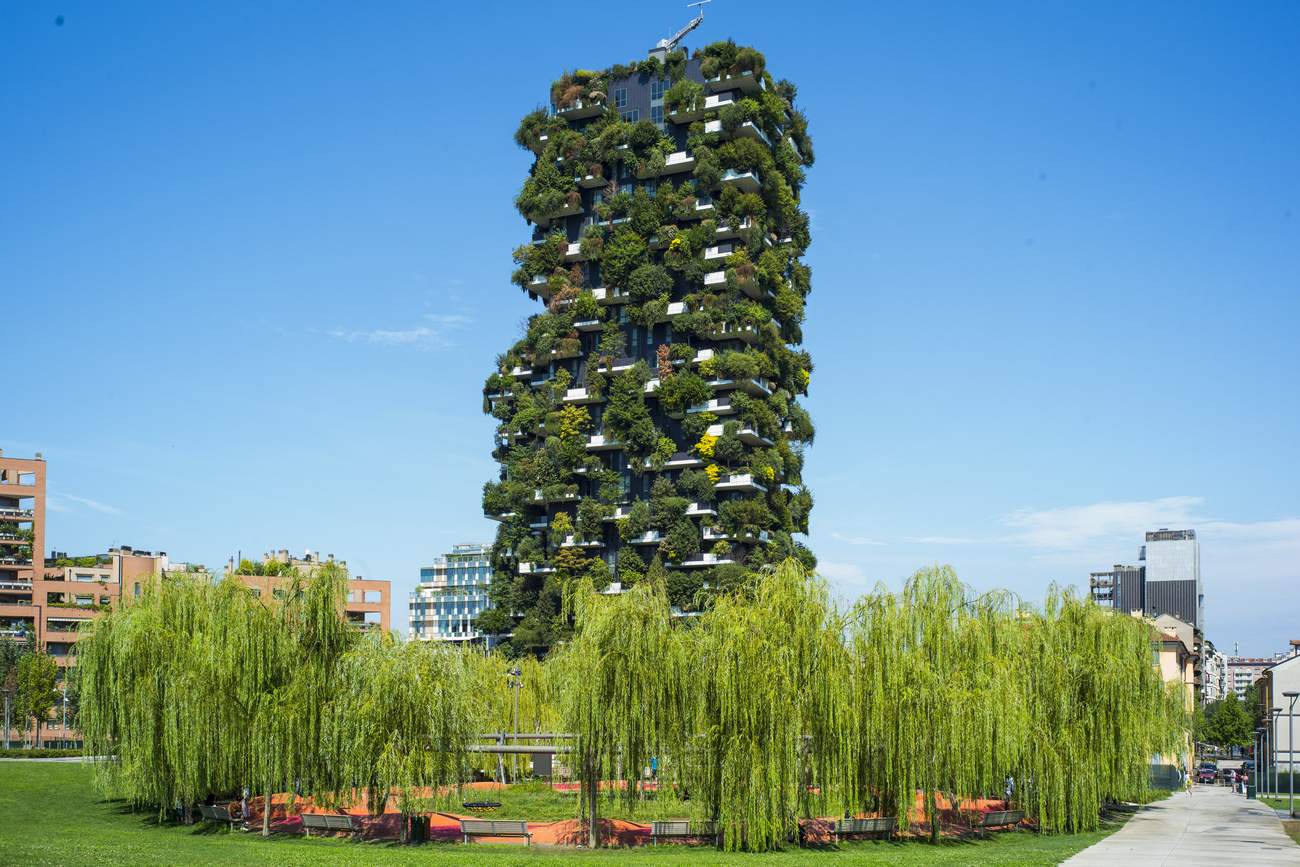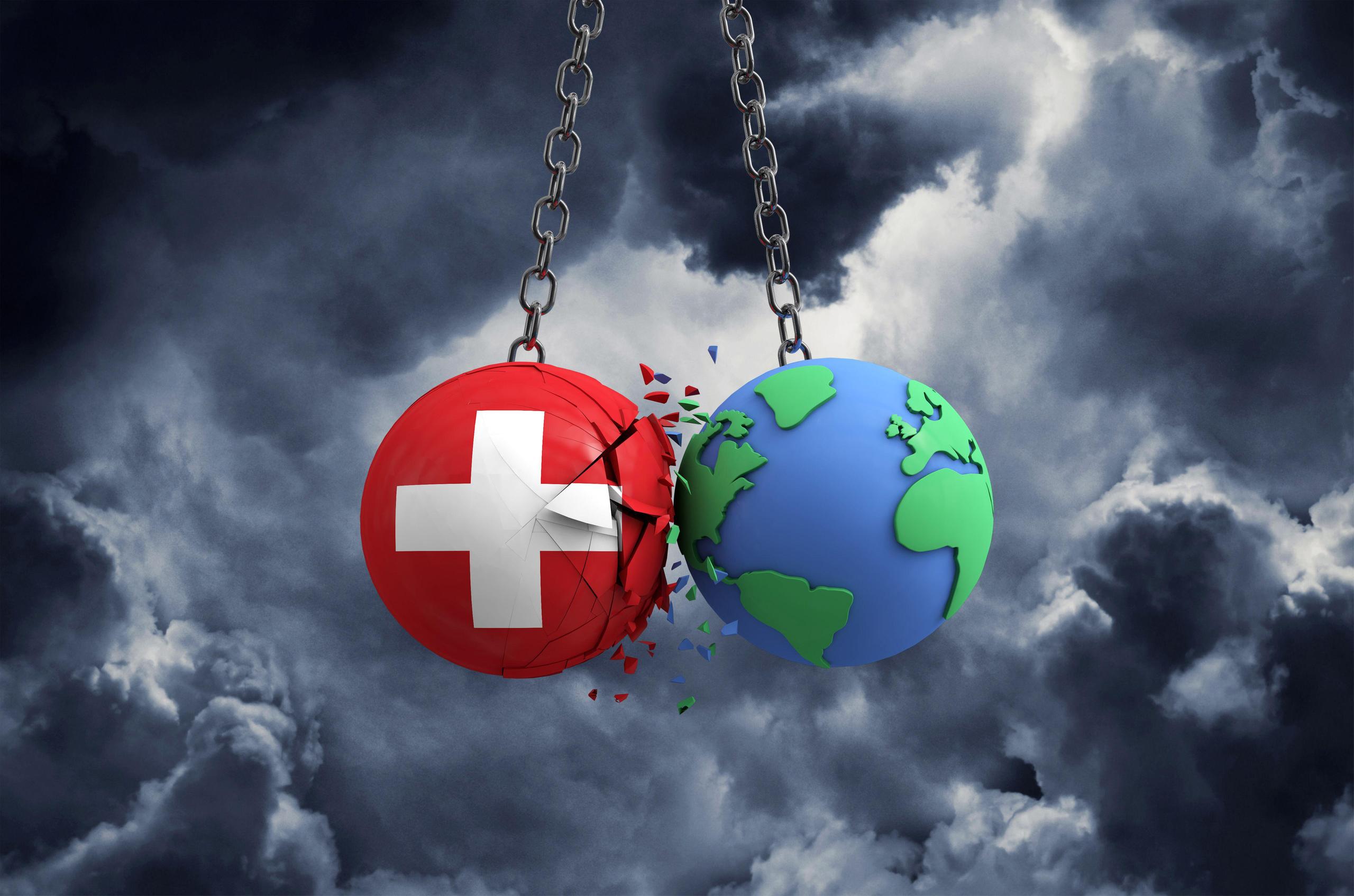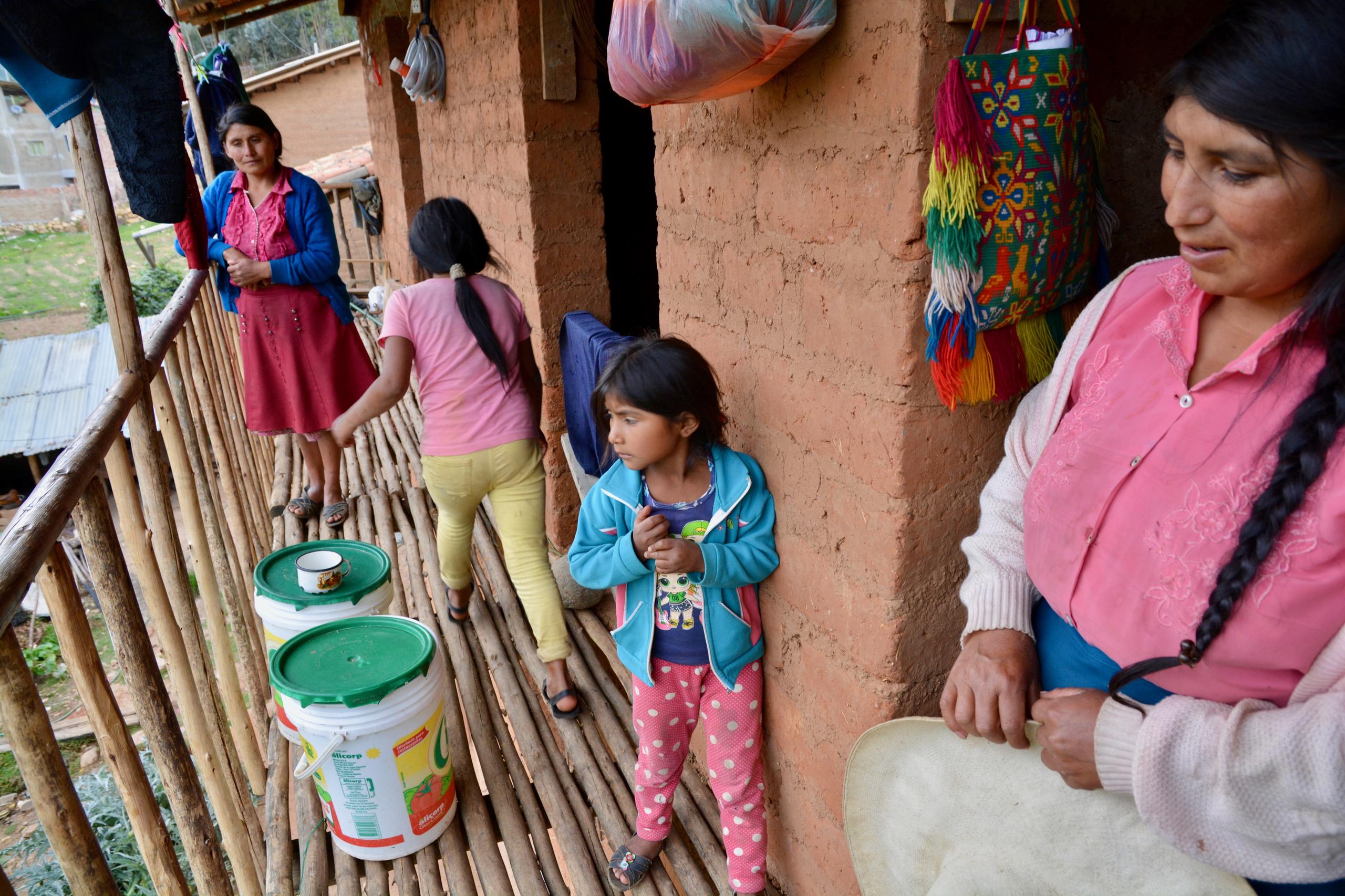‘Nature must be our ally in climate adaptation’

Options for adapting to global warming are at the heart of the latest Intergovernmental Panel on Climate Change (IPCC) report. SWI swissinfo.ch talks to two of the report’s authors in Switzerland, political science professor Thomas Bernauer and climate expert Rupa Mukerji.
More than 330 people from some 70 countries reviewed more than 34,000 scientific articles. These are the numbers of the new report on the state of the planet published on Monday by the UN Intergovernmental Panel on Climate Change (IPCC). The report outlines the repercussions of rising emissions and temperatures on ecosystems and human societies, particularly in cities, and emphasises adaptation measures.
“There is clear and growing evidence that the impacts of climate change on humans and nature are very serious and affect us all,” says Thomas Bernauer, professor of political science at the federal technology institute ETH Zurich.
“For example, water scarcity is increasing in many regions of the world. There are more landslides, more floods, more droughts, more extreme weather events, more biodiversity losses. These are not random events, but the clear consequences of global warming.”
The Intergovernmental Panel on Climate Change (IPCC) is based in Geneva and brings together 195 member states. It is organised into three working groups which focus on different aspects of climate change. Working Group I (WGI) deals with the scientific basis; WGII assesses impacts on natural systems and adaptation options; WGIII focuses on mitigation (reduction of greenhouse gases).
The report published on Monday is the result of the work of WGII and represents the second part of the IPCC’s Sixth Assessment Report. The first part was published in August 2021, while the third will follow in April.
These reports are important because they are used to help develop national and international climate policies.
Rupa Mukerji, a climate expert at the Swiss development aid organisation Helvetas, says the changes in extreme events hypothesised in previous reports are already happening now.
“Everything that was anticipated seems to be happening a decade earlier, and this is frightening,” she says.

More
Greta was right: our house is burning down
Mangroves against rising seas
Mukerji emphasises the need to think about long-term adaptation solutions. Building a dam or protective wall in a flood-prone region is certainly helpful, but it could also provide a false sense of security. Large structures can also disrupt connections between ecosystems.
She cites the case of Bangladesh, among the countries most vulnerable to climate change, and its nature-based approach.
“Restoring and preserving mangroves is an effective way to cope with rising sea levels,” she says, pointing out that thanks to a widespread warning system capable of reaching households directly, mortality during extreme events has also been greatly reduced.
Bernauer also believes it’s critical to rethink nature, especially in urban areas, where the heat island effect is driving the temperature even higher. It’s better to bring nature back to up urban spaces than to put in air conditioners, he says. “Many examples in the report prove it: nature must be our ally in adapting to climate change, thus reducing our vulnerability to climate change risks.”

More
How Swiss cities are beating the heat
Gap in poor countries and also in Switzerland
Adaptation requires investment. However, it is not just a matter of money, according to Bernauer. The new IPCC report shows that the capacity of adaptation in the world is strongly influenced by the level of development of the region or country in question. However, not only the gross domestic product matters, but also the political and social institutions.
“In a state that is rich, but corrupt and with bad governance, the capacity of adaptation is very limited,” he says.
Bernauer is concerned that adaptation efforts around the world are not keeping pace with increasing climate risk, what’s known as an adaptation gap. A big adaptation gap is unsurprisingly observed in poorer countries and countries that are poorly governed, but this gap also appears in rich democracies such as Switzerland.
“In the Alps, for example, the average temperature is increasing faster than the global average. We can’t just stabilise mountain slopes or use concrete, steel and rocks to protect against increasingly extreme weather events and floods. It also takes massive efforts in urban planning, adapting agricultural practices, and making energy and transportation infrastructure less vulnerable to climatic risks. All this will take decades,” he says.
Action must be taken now, Mukerji stresses, in part because the more the temperature rises, the fewer the options for adaptation.
More

In compliance with the JTI standards
More: SWI swissinfo.ch certified by the Journalism Trust Initiative














Join the conversation!